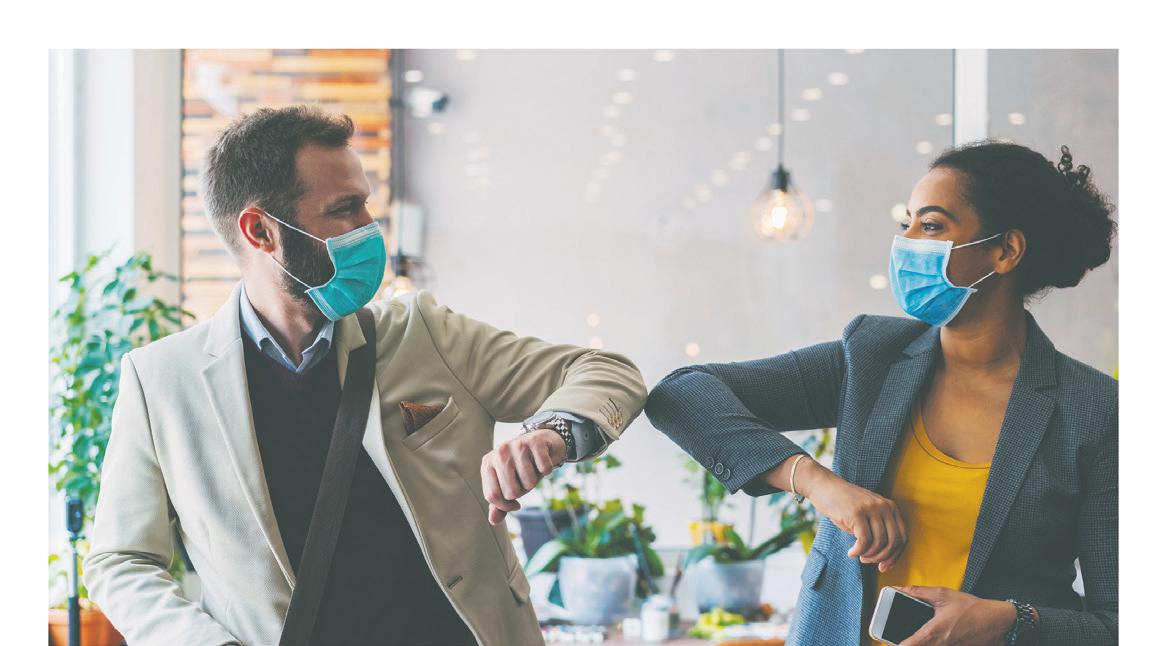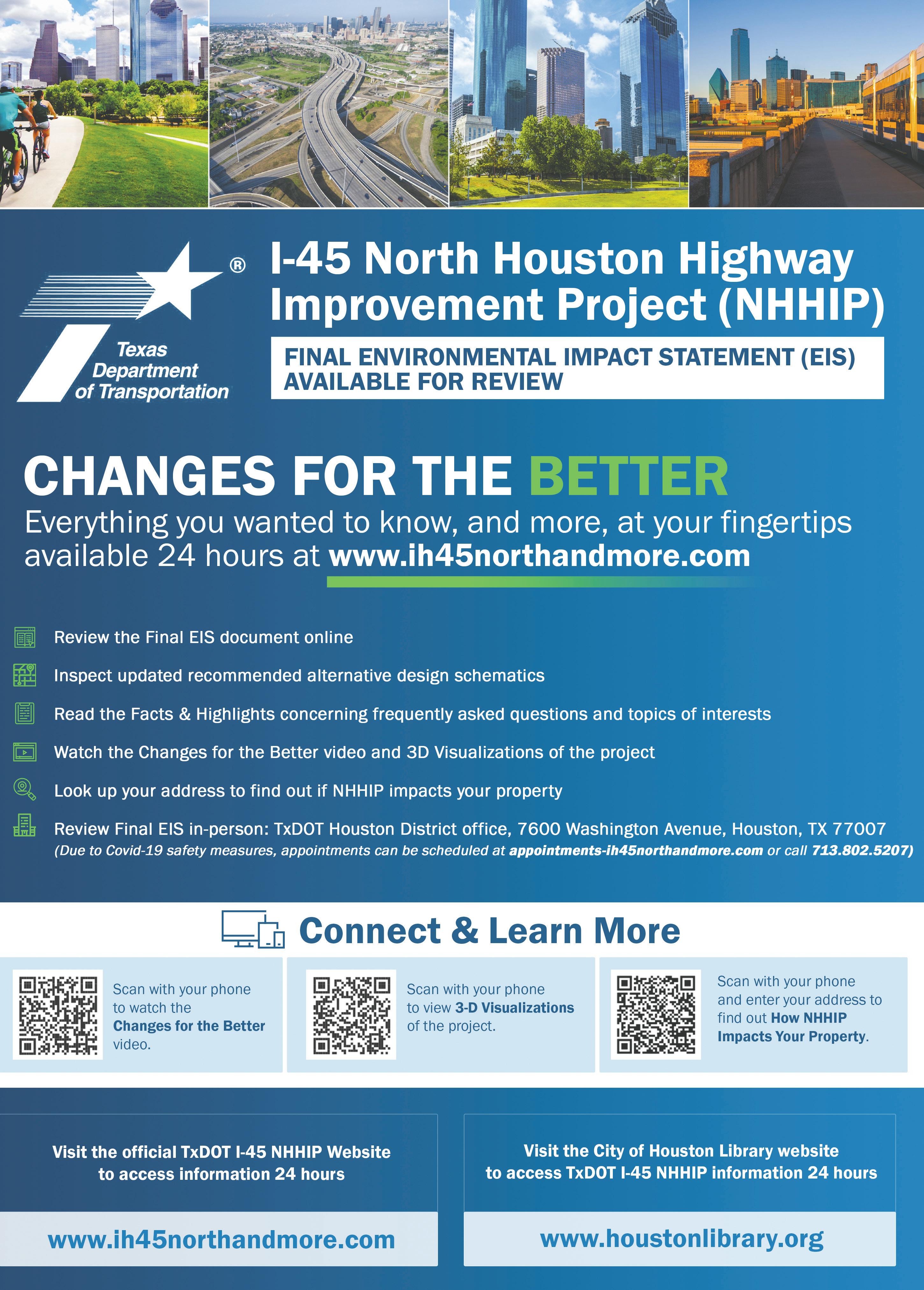






The Greater Houston Partnership today released a statement on behalf of its president and CEO, Bob Harvey regarding confusion surrounding Texas Governor Greg Abbott’s Texas Executive Order GA-18 and whether it calls for the return of office workers to the workplace.
“We are suggesting to Houston companies that they delay the return of office workers to the workplace for the time being. Many office-based employees have been able to carry out their tasks remotely for some time now, and as we enter this gradual process of reopening, there is no need to add ‘fuel to the fire’ when it comes to COVID-19 transmission.
“Governor Abbott is clear in his executive order that we all should minimize contact with people outside our household unless we are providing or obtaining essential or reopened services, and specifically says employees ‘should work from home if possible.’ To me, unless you are an essential worker at one of these companies and you need to
be physically present to do your job, commonsense would say you should continue teleworking.”
On Monday, April 27, Texas Governor Greg Abbott issued Texas Executive Order GA-18 to begin the process of reopening the Texas economy.
According to GA-18, “…every person in Texas shall, except where necessary to provide or obtain essential services or reopened services, minimize social gatherings and minimize inperson contact with people who are not in the same household.”
The order continues, “In providing or obtaining essential services or reopened services, people and businesses should follow the minimum standard health protocols recommended by DSHS, found at www.dshs.texas.gov/ coronavirus and should implement social distancing, work from home if possible, and practice good hygiene, environmental cleanliness, and sanitation.”
To aid businesses in their efforts to determine if they are an “essential service or reopened service,” the Texas Department of Emergency Management established a webpage to guide that determination.
“Essential services” as defined by the Department of Homeland Security’s Cybersecurity and Infrastructure Security Agency (CISA) have been permitted to operate on an emergency basis since the beginning of the COVID-19 pandemic. Abbott’s order adds a list of “reopened” services as including restaurants, retail, movie theaters, malls, museums and libraries.
CISA’s COVID-19 guidance regarding the workers working for essential companies states, “Workers should be encouraged to work remotely when possible and focus on core business activities. In-person, non-mandatory activities should be delayed until the resumption of normal operations.”
In his list of reopened services designated in GA-18, Governor Abbott states, “Services provided by an individual working alone in an office.” During his announcement on Monday, the Governor stated that “sole practitioners” would be able to reopen. There was no reference to individual offices in a larger office environment.
Source: Greater Houston Partnership
The recent transition to widespread working from home has shown that the experience has been both educational and eye-opening for many. Working at home means learning to cope with distractions, space constraints, managing time with family and learning new skills. And, according to new consumer research, it has also meant reassessing what is most important.
A nationwide survey conducted by Wakefield Research on behalf of LG Electronics reveals the many ways working from home has challenged and surprised Americans.*
The most striking survey results show the importance of close relationships. Social distancing has caused many to reassess who is most important to them, and how much they may have taken friends and family for granted.

The global health crisis has turned socializing into a more deliberate act. More than half (53%) of homebound people said they felt closer to loved ones than before the outbreak, and 27% even said that they
felt much more connected than before. When asked what they want to do first when the crisis is over, the top answer was to visit loved ones, followed by going out to a meal.
For many people, juggling priorities and obligations was difficult even before the switch to remote working. But having to work at home has shined a brighter spotlight on how we cope and find a healthy work-life balance.
Here are some of the tricks people have discovered:
• Half said they take frequent short breaks to balance work and home responsibilities.
• 37% are starting work earlier, while 17% are starting work later to manage schedules better.
• 35% are learning to keep their whole household to a schedule.
• 23% use visual cues (like signs) to let others know when they're working.
Most people affected by the crisis say they have had to master (or learn from scratch) how to complete their work entirely from home, including the new norm of conducting
video conferences from somewhere in their home.
Technology has been crucial to this adaptation. Almost half (47%) have discovered a new app or service they say they now can't live without - especially video chat apps that have helped them learn how to communicate better with colleagues and loved ones.
As one might expect, a majority of respondents admitted to making conference calls from a common area in their house. However, some said they were stuck calling from a makeshift workspace in a lesser-used part of home. One-fifth of respondents admitted to calling from a basement or attic, while others said they took work on the go. The research shows 18% have called from their cars, and perhaps most surprisingly, 12% admit taking work calls in the bathroom.
For many, the time they've spent working at home has helped them appreciate how successfully technology has kept them connected on all fronts, including their work and personal lives.
Overall, the experience of working from home has had everyone reassessing what - and who - is most important to them. Among those who said they've discovered new apps, digital services or technology, many said that they were spending significant time using it
for family or relationship management.
An overwhelming number of survey respondents said that they plan to continue at least one of their new practices even after returning to a "normal" work situation, including:
• 39% plan to do more cooking.
• 43% said they're likely to arrange more family dinners.
• 39% also said they would do more video chatting.
As a result of spending some more time at home, many have been rethinking their priorities, with nearly half considering buying or using fewer things. Some (16%) have thought about beginning a new career, and others are considering starting their own business (14%).
No matter what your work-from-home experience has been, chances are it's changed your attitudes about work and family lifeand how to balance the two - in ways that will stay with you long into the future.
*The LG WFH Survey was conducted by Wakefield Research among 1,000 U.S. adults, working from home due to COVID-19, between April 10 and April 15, 2020, using an email invitation and an online survey.
Source: BPT
